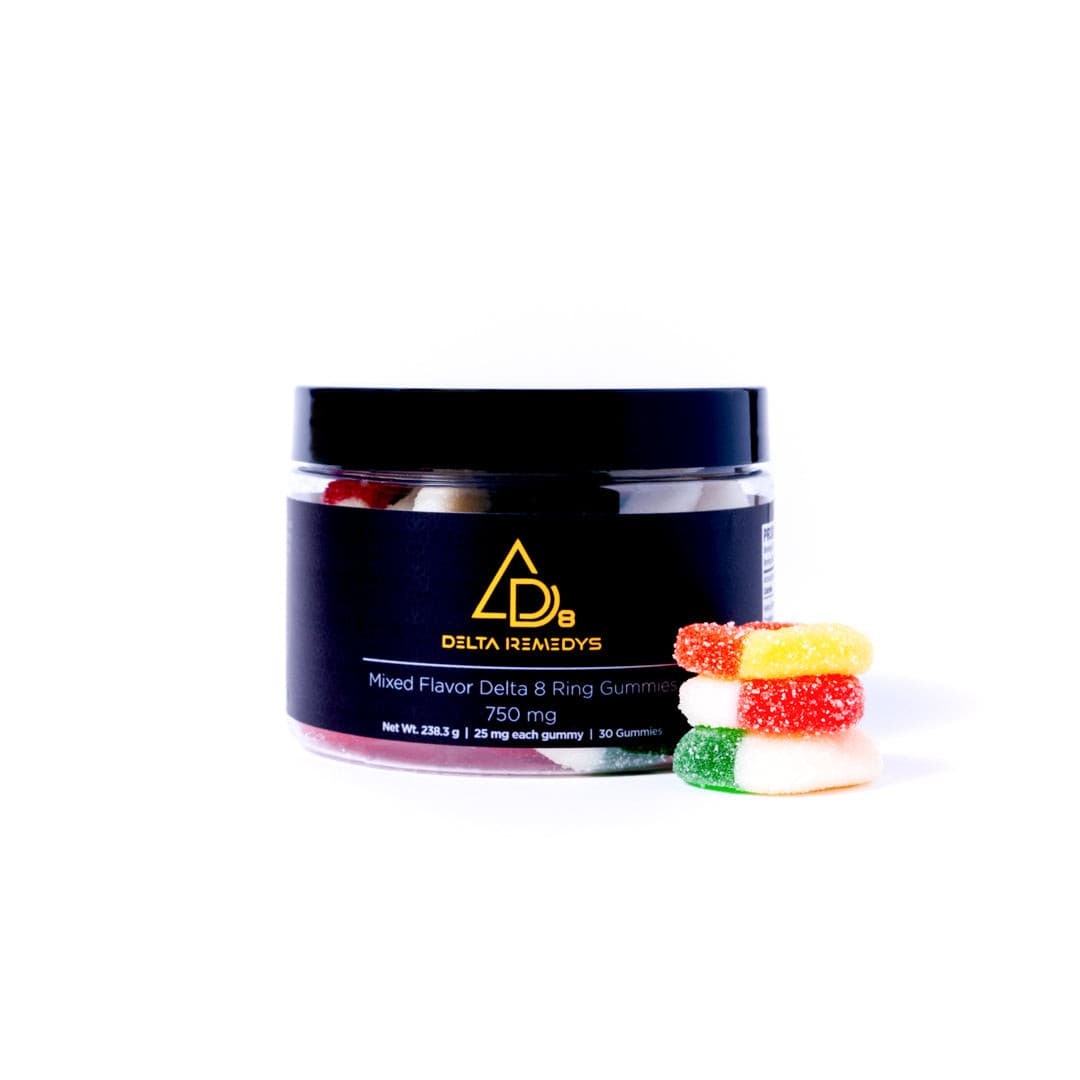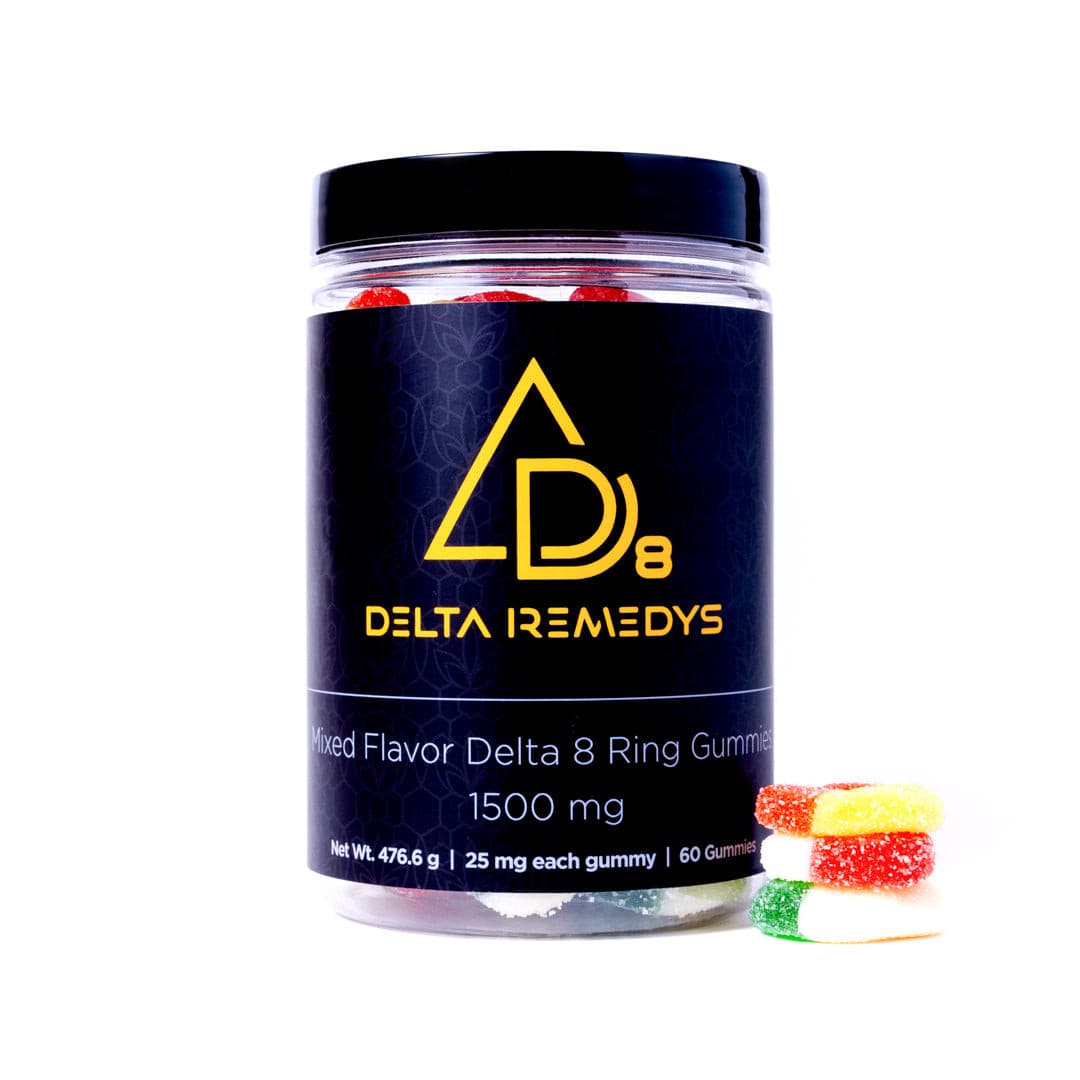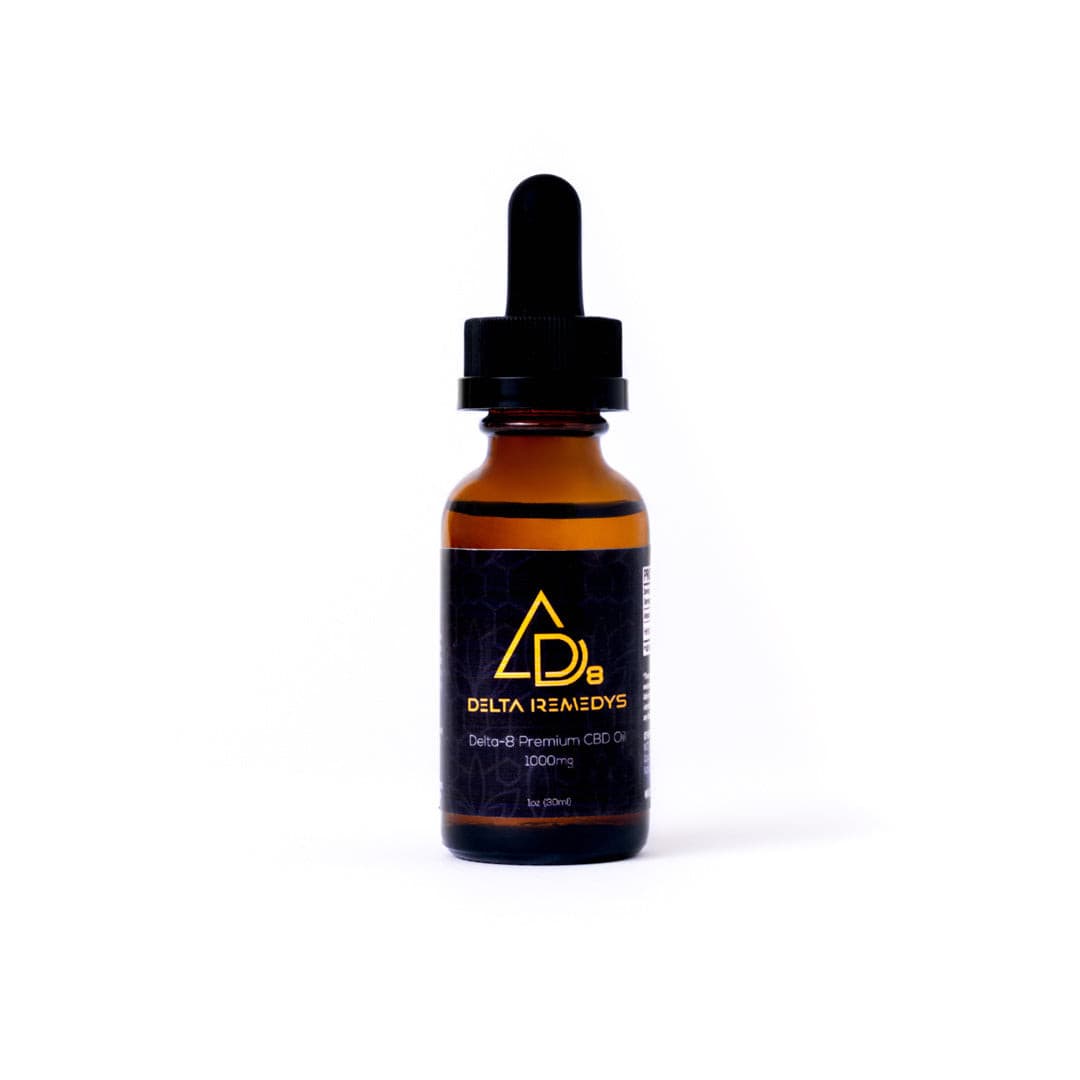A frequently asked issue about cannabinoids such as HHC is, “Will it be detected on a drug test?” Even though some people who have used HHC Gummies once or twice say it won’t show up in a drug test, others who have used it more than that say it will.
Cannabidiol, or HHC, is a new psychoactive chemical that is yet mostly unknown in terms of HHC vs THC. HHC is a cannabinoid somewhat more potent than the widely used Delta 10 Gummies, Delta 8 Gummies, and near to similar Delta-9 gummies. It shares properties with the principal element in cannabis, Delta-9 THC.
The fact that high-potency cannabidiol is allowed on a national basis is excellent news for those who use different types of edibles made from cannabis and seek a legitimate method to feel a distinct high.
You are on the perfect corner of the vast internet world if you are concerned about passing a drug test shortly. This post will help you learn and understand everything about HHC and drug testing, answering your important questions.
But first, the basics!
Basic Definition of HHC
Cannabinoids like hexahydrocannabinol (or HHC) found in hemp have stimulating effects similar to those of Delta-9, albeit with a little less intensity. Estimates indicate that HHC has around 80% of the potency of Delta-9. Within the hemp plant, you can find minute concentrations of HHC.
By hydrogenating Delta-9 with hydrogen atoms, American chemist Roger Adams created hexahydrocannabinol in 1944. Hydrogenation was the process he used to bring hydrogen molecules to Delta-9, resulting in the creation of HHC.
Realizing how similar HHC is to THC can help you comprehend why it could cause a failed drug test.
Delta-9 THC and HHC have nearly identical effects inside the human body. They have an impact on the endocannabinoid system (ECS), which is a network of endocannabinoids, receptors, and enzymes. Maintaining internal stability and equilibrium is the responsibility of the ECS. Users report feeling calm and happy after consuming HHC because it acts on the CB1 receptors in the brain and CNS, which are part of the endocannabinoid system.
It’s also possible that HHC influences the production of related hormones through interactions with other receptors. Due to the paucity of existing research on the subject, additional research is necessary to comprehend how the body interacts with HHC fully.
Drug Testing Based on Science
Delving into the scientific knowledge of drug testing will shed light on whether or not HHC is detected. Urine testing, which can identify metabolites of illegal substances (including THC metabolites), is the gold standard for drug detection.
Cannabinoids found in hemp and those found in marijuana are usually indistinguishable in these tests. In metabolism, THC and HHC transform into 11-hydroxy-THC and 11-hydroxy-HHC, respectively. Both metabolites share many structural similarities, which can make it difficult for specific drug tests to distinguish between them.
HHC & Drug Test Detectability
Based on the existing research and anecdotal evidence, there is still no clear answer as to whether or not HHC causes a positive drug test result. Some people say they were able to pass drug tests after using HHC, while others say they failed with just a little.
Since HHC’s metabolites are pretty similar to THC Gummies, they may be detectable in drug tests. Remember that the amount of detectable HHC on a drug test can vary from person to person based on their metabolism and other personal factors.
Concerns About Cross-Contamination
It is critical to exercise caution to avoid cross-contamination while thinking about HHC and drug testing. A new breed of HHC products has entered the market without the necessary testing or contamination reports, putting consumers in danger of unknowingly ingesting levels of Delta-9 THC higher than the 0.3% limit set by the federal government.
A positive drug test could be the consequence of systemic accumulation of full-spectrum goods containing Delta-9 THC, even though HHC is itself possibly legal.
Popular Drug Testing Methods
Hospitals, law enforcement, corporations, and probation officers frequently utilize five different kinds of drug tests. The accuracy and cost of these tests can differ significantly depending on their intended application.
Have a look below:
Detection by Saliva
Police officers and other law enforcement community members often use saliva testing to determine if a driver is drinking or on drugs. Due to their 10-hour window of detection, these tests are not very accurate for identifying THC edibles in your system. The common method for conducting these tests involves using a cotton swab to scrape the inside of the cheek.
Detection by Blood
Most blood tests are conducted in medical facilities. It is possible to find out whether you are carrying HHC or THC products like Delta 9 THC gummies in your body by a blood test, especially if you are currently in a medical facility on the allegation of being under the influence. These tests do not look for THC metabolites but rather for evidence of current intoxication in your blood. Assuming you are sober when blood is drawn, the result will be negative.
Detection by Urine
Urine tests are the most popular to detect THC and HHC in the human body. Moreover, they are inexpensive, easy to perform, and highly accurate. To detect the THC-COOH metabolite, which can be present in the body for weeks following consumption, nearly all probation officials and employers use urine testing. To prevent manipulation, these tests can be conducted in the presence of a designated observer or behind a small barrier.
Detection by Sweat (Perspiration)
Perhaps you are least likely to be subjected to sweat tests out of all the drug tests. These tests have limited use in clinical research due to their high cost and invasive nature. An adhesive patch is placed on the user’s skin and left there for two weeks; during that time, the patch will detect THC-COOH metabolites. Relax; this is the least probable way you may be subjected to a drug test.
Detection by Hair
The hair test is the most costly method of drug testing. While it did take some time to respond, the results are exact. As your body breaks down the compounds, its end destination will be your hair follicles. Since hair takes a long time to grow, these tests can tell you if you’ve recently eaten HHC based on the number of weeks since you last did so. Legal recruiters can use hair testing, often reserved for autopsies, to screen candidates.
Duration of HHC in the Human Body
High levels of HHC, like those of other cannabinoids found in Delta 8 tinctures and
Delta 9 tinctures can persist in the bloodstream for some time after use. Many things, like your body type, weight, sleep cycles, eating habits, and metabolism, determine how long it takes. It is necessary to investigate the operation of drug tests to grasp the connection between HHC drug testing completely.
Although additional drug detection methods exist, the urine drug test remains the gold standard. Many government agencies and private employers utilize this to check for drug levels.
A urine drug test finds metabolites of drugs by examining a urine sample. These byproducts are created as the body breaks down and eliminates drugs from the body. After ingesting a medicine, the liver converts it into its component metabolites, which the body eventually eliminates through the urinary tract.
It takes different medications’ metabolites differing amounts of time to be eliminated from the body, a phenomenon known as half-life. For example, it typically takes the body around three to four days to clear half of the THC metabolites, as the half-life of these compounds is approximately that long. Numerous factors, such as the type of the products, dosage, quality, quantity, frequency of use, and the individual’s weight, height, and metabolism, determine how a medication (or its metabolites) will stay within your body.
Although the exact amount of time that HHC stays in the human system is unknown, it is thought to be around the same as other THC derivatives. It is believed that the liver and kidneys are responsible for the processing and elimination of HHC, just like they are for THC.
With this new knowledge in hand, we can look into the possibility that a drug test would pick up on HHC.
Although it shares structural similarities with THC, HHC is not officially a THC molecule, despite its similarity to other cannabinoids. Consequently, it’s conceivable for HHC to result in a positive drug test for THC, mainly if the test isn’t developed to identify HHC precisely.
Few researchers have looked at whether or not HHC may be detected in drug tests; nevertheless, little is known to indicate that it can cause a positive result for THC.
A Legal Overview of HHC – Flying with HHC
Are you planning to buy HHC products or to fly with your favorite HHC gummies by Delta Remedys? The answer is very similar to this; can you take Delta 8 on a plane or fly with Delta 8?
Although federal law prohibits THC, HHC has not been designated as a controlled substance as of yet. Nevertheless, there can be travel restrictions linked to HHC, even though it’s not unlawful in and of itself. Research and understanding any possible rules and regulations should be done before bringing HHC products on a plane.
Can e-cigarettes and other HHC products be brought onto a plane? Yes, in a nutshell, although there are specific regulations to adhere to, mainly when carrying HHC.
Additional factors must be considered while traveling abroad with vape devices or gummies containing HHC. Remember that the rules in your native nation might not apply in other countries. Consequently, before you travel, ensure you are familiar with the rules and laws of the nations you intend to visit.
For further information regarding HHC or THC restrictions in the country you plan to visit, contacting their embassy or consulate is a good idea. There may be stringent regulations against using cannabis in certain nations, with fines or jail time as possible consequences.
Thus, following their rules and not owning any HHC products is essential if it is against the law. Just like you need to understand the similarities between HHC and THC, you must also understand the case between THCP vs THC to avoid even the slightest risk while traveling.
Wrapping Up
Do not consume any products derived from hemp or marijuana if you are subject to drug testing, whether it be for work purposes or another type of screening.
The cannabis market is witnessing a meteoric rise in popularity for HHC, a relatively new THC derivative. Although it is lawful in the majority of states and has has lesser challenges comparable to the query, is delta 9 real weed, much research is still necessary to determine its safety and effectiveness.
Be wary of scammers who sell low-quality HHC products. Stick to trusted vendors who put their wares through rigorous testing to ensure they are pure and practical, just like Delta Remedys!
Keep in mind that as it is a derivative of THC, it could potentially cause positive results on a drug test if you are worried about that, just like you ask, does delta 8 show up on drug tests? For those who are subject to frequent drug testing or who should seek medical advice before using any HHC product, it is recommended to refrain from doing so.
In summary, for individuals looking for the benefits of THC, HHC may provide something new and exciting. Nevertheless, it is crucial to conduct thorough research, buy from trustworthy vendors, and use responsibly when dealing with any cannabis product.




